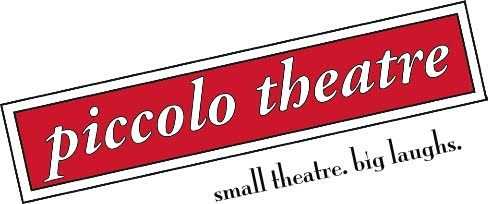 At Piccolo, we sure love our fools. So in honor of fools and foolishness, I set out to see what I could find about the origins of April Fools Day. It seems I set out on a fool’s errand, because the origins have not conclusively been traced.
At Piccolo, we sure love our fools. So in honor of fools and foolishness, I set out to see what I could find about the origins of April Fools Day. It seems I set out on a fool’s errand, because the origins have not conclusively been traced. There are all sorts of references in early European literature to April 1st as a fool’s day, as far back as the 1500s. But Shakespeare, who is usually so fond of fools, never mentions it. According to www.museumofhoaxes.com, there was no scholarly curiosity about the origins of April Fools until the 18th Century. By then it was so ingrained as an ancient custom that when scholars asked revelers in the street where it had come from, all they could say was “the ancients, man. Hey, what’s that big hairy thing over your left shoulder?”
The New Years Swap Theory
The most popular theory about the origin of April Fools takes us back to France in 1563. The idea is that when Charles IX reformed the calendar, New Year’s Day was moved from April 1st to January 1st. Instead of the eight raucous days of springtime partying the French were accustomed to, they got one measly day in the dead of winter. So a bunch of them decided to celebrate in April anyway- or they just didn’t get the news because they lived so far from the local newsstand- and they let loose with the hooplah in Spring like usual. Their neighbors, instead of informing them about the changes like one might expect a neighbor to do, stuck a paper fish on their backs and called them Poisson d’Avril, which is still what the holiday is called in France to this day.
My favorite antique April Fools plot concerns the legend of the Duke of Lorraine and his wife. They were in prison, but on April 1, 1632 they had the brilliant idea to disguise themselves as peasants and just walk out through the front gate. Someone told the guards, who were certain the warning was a “poisson d’Avril” and laughed at it- they were no fools! While the guards refused to fall for the prank, the Duke and his wife made their escape. This just goes to show how much fun you can have when you dress as a commoner. I do it all the time.
1686: The English Get the Joke
In 1686 the English antiquarian John Aubrey wrote, “Fooles holy day. We observe it on ye first of April. And so it is kept in Germany everywhere.” So the British, always a little late to get in on the party, were finally in on the joke. By recording this, the scholar Aubrey managed to get in a good dig at the foolish Germans. I can picture him rolling his eyes and underlining the word everywhere three or four times. What a good prank! The Germans wouldn’t know what hit them until after his death when Aubrey’s notes were published posthumously.
April Fools as a Renewal Festival
There are plenty of holes in the prevailing New Years Swap theory, including the argument that the French never actually celebrated the New Year on April 1st to begin with. Some say that was the British, and you know how the French and the English hate it when people get them confused.
To me, the best theory is that April Fools or All Fools Day joins the ranks of the many ancient renewal festivals that marked the coming of Spring. Is there anything better than a festival creating a ritualized opportunity for mayhem and misrule? These festivals usually flipped the social order and allowed the riffraff to be king for a day. They involved disguise, deception, and the general airing out of social tensions in a way that could induce laughter instead of conflict.
Couldn’t we use a bit of that ourselves? As Shakespeare shows us, the best Fool is an honest fool. By staying honest to the real hypocrisies, weaknesses (and strengths) she witnesses, the fool keeps the rest of us honest. I think we could really benefit from the opportunity to dress up like the politicians, CEOs, and Barons of Oil & Industry and prance around with them, eating and drinking and making them shine our shoes. (Or better yet, put on a play for us!) These festivals weren’t mean spirited. They were about releasing the phenomenal power of laughter to defuse dangerous, and very real, social tensions.
April Fools Day bears all the marks of these ancient, powerful festivals: disguise, lying, pranks, and a one-day challenge of social rules of proper behavior. Tomorrow, it’s over. We can be secure that by morning we will be re-affirming society and carrying on as usual; just as the warmth and bounty of Spring is bound to return after even the most brutal of winters.
-Brianna Sloane, Piccolo Theatre Ensemble Member



No comments:
Post a Comment